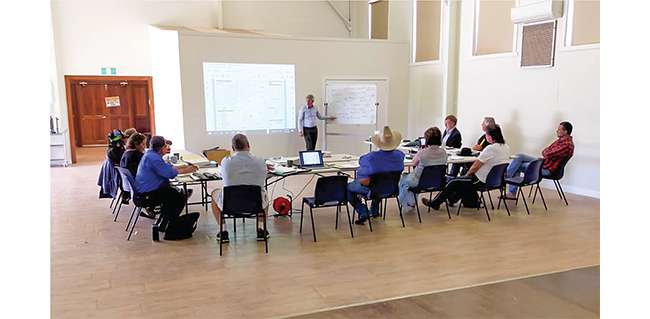PBC Legal & Consultancy Services is a boutique legal and advisory practice that has established an international reputation of working with clients in the extractive industries to implement and get the best outcomes achievable from indigenous-industry agreements.
The blasting of Juukan Gorge caves in the Pilbara plunged the WA resources sector, and the careers of several former senior Rio Tinto executives, into disrepute. It also caused untold harm to the Puutu Kunti Kurruma and Pinkura people by the destruction of their sacred site. But it has also ensured that the future implementation of native title agreements and the monitoring of cultural heritage will rank ‘high' on the risk matrix of senior management and boards in the industry.
The Never Again interim report of the Commonwealth parliamentary committee's inquiry recommended all mining companies operating in WA undertake an independent review of their native title agreements and commit to ensure consistency with best practice.
"The committee unearthed evidence of little consistency in how agreements are implemented and heritage outcomes monitored across the industry," Franklin Gaffney, Principal at PBC Legal & Consultancy Services said.
Some companies did little monitoring or meaningful engagement with traditional owners relying instead on under-resourced Indigenous parties to use agreement processes to monitor companies' actions and protect their (and the nation's) heritage. Other companies like Rio Tinto, BHP and FMG established large teams to implement their agreement obligations and report to senior management, though in the case of Rio, the evidence showed that its corporate culture prioritised commercial gain over engagement with traditional owners.
The committee was also scathing of the lack of resources directed to heritage monitoring and implementation processes. Only $50,000 was provided by government funded native title representative bodies to individual Indigenous groups to establish their corporations that were legally obliged to monitor agreements. The committee was told by one Indigenous corporation it spent 80% of its mining royalties ($4.5m in 2019/20) on governance arrangements to monitor the actions of resource companies operating on their lands. These funds were being redirected away from much needed programs and development opportunities for its Indigenous members.

Franklin Gaffney, Principal at PBC Legal & Consultancy Services.
The committee foreshadowed its final report, expected in the middle of 2022, is likely to recommend national standards for heritage protection and amendments to Native Title Act (NTA) to strengthen requirements to protect Indigenous peoples.
Some in the industry will oppose the changes.
"Imposing another layer of regulation will not ‘fix' issues identified, nor will it deliver any improvements to heritage outcomes in WA," Paul Everingham from the WA Chamber of Mining and Energy in WA said.
Mr Gaffney said "changing community expectations should come as no surprise to the industry and is not confined to the Australian landscape". He referred to changes to EP4 of the Equator Principles (EP) which came in effect in July last year. "Where the EPs apply, resource companies operating in Australia will need to obtain independent evaluations of their consultation processes with Indigenous peoples against the NTA and Aboriginal heritage legislative requirements and the International Finance Corporation's relevant standards," Mr Gaffney said.
Rather than wait for the committee's final report his consultancy is now working with companies to get on the front foot to review their agreements, processes and protocols with Indigenous parties, and where necessary, making changes to strengthen their engagement with the Indigenous communities that border their operations. Mr Gaffney said "there is a realisation that these processes and protocols must now be designed and implemented working together with those directly affected - the Indigenous people and their local corporations".
"The success of the implementation models is now being measured by the impact they have on the Indigenous people in local communities, not by the traditional ticking-the-box-exercise," Mr Gaffney said.
Many companies are re-assessing whether their presence is having a positive impact in the local community. In the past, companies championed the positive impact they were having by engaging Indigenous employees and establishing reconciliation action plans. However, in many cases business and employment opportunities went to Indigenous people with no connection to the local community. Mr Gaffney said where this occurred these companies' well-meaning efforts did not generate any goodwill or social capital at the local level. "If social capital is not generated and communication channels are poor or non-existent when things go wrong, as occurred at Juukan Gorge, companies will not be able to rely on community goodwill," he said.
The cumbersome consultation processes and ‘gag clauses' in agreements had also previously kept community concerns out of the mainstream media. Mr Gaffney said communities are finding their voice and bringing their concerns to the public attention through social media.

Designing implementation structures with traditional owners is essential to community engagement.
"As the committee findings highlighted, their lawyers and state and federal parliamentary representatives had let local communities down, so they had little option but to use alternative avenues," Mr Gaffney said.
Companies are adopting a range of measures to address these concerns. Many have committed to modernise their native title agreements and establish advisory groups to incorporate local Indigenous peoples' views and concerns into the local operations and be a conduit to senior management and boards.
It would be a mistake for companies to review their agreements internally, Mr Gaffney told Australia's Mining Monthly. Companies need to meaningfully engage and listen to the local community's concerns and suggestions and develop an understanding of what is possible through best examples in Australia and overseas. While indigenous-industry agreements are a recent phenomenon in Australia, Mr Gaffney said agreement parties can learn from the overseas experiences and adopt best-suited approaches to develop local human capabilities and protect heritage.
More information:
Indigenous-Industry Agreements, Natural Resources and the Law, Routledge (2021): https://bit.ly/3jEee8n
PBC Legal & Consultancy Services
P: 0400 972 615
E: franklin.gaffney@pbcconsultancy.com.au
W: www.pbcconsultancy.com.au

























